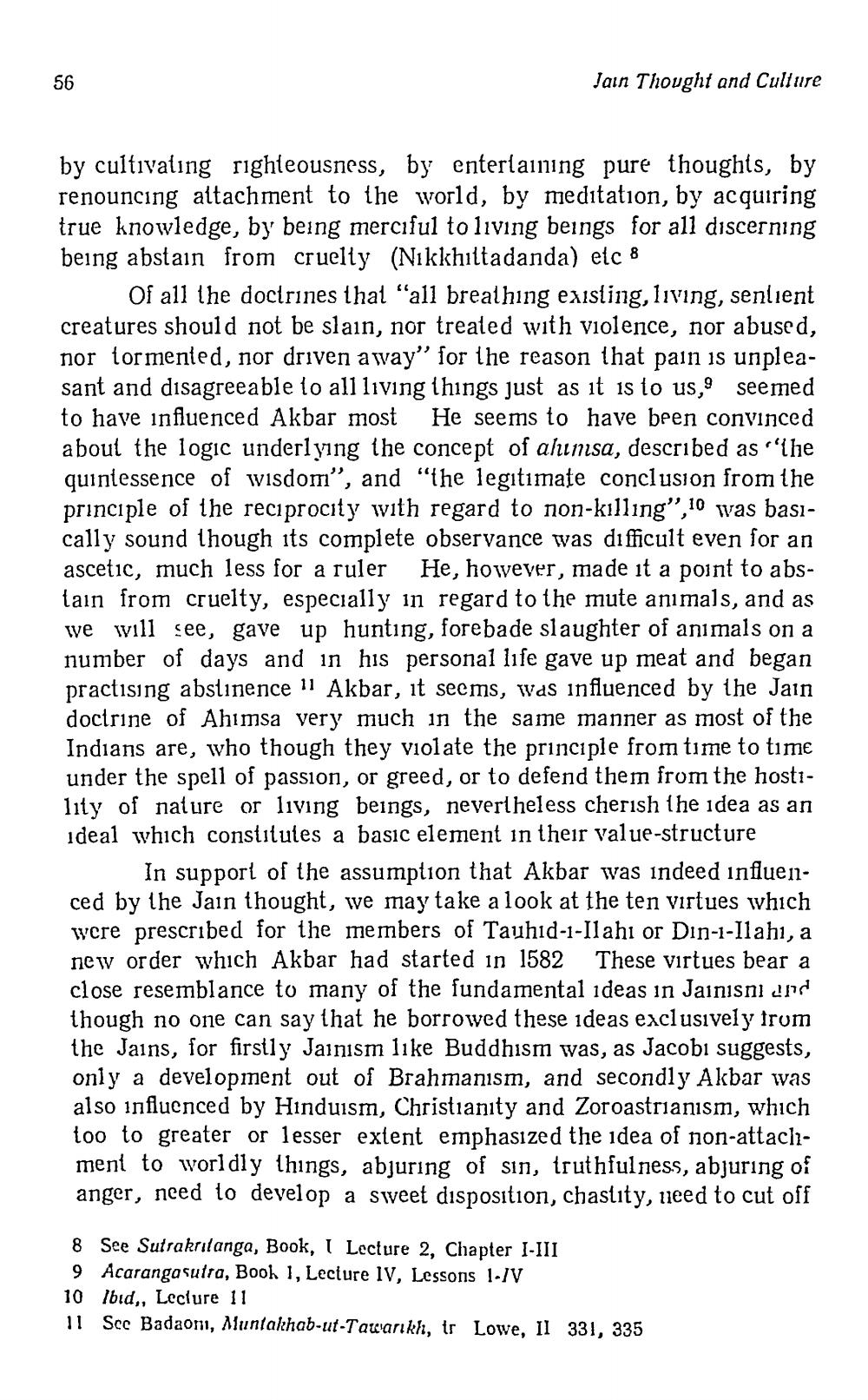________________
56
Jain Thought and Culture
by cultivating righteousness, by entertaining pure thoughts, by renouncing attachment to the world, by meditation, by acquiring true knowledge, by being merciful to living beings for all discerning being abstain from cruelty (Nikkhittadanda) etc 8
Of all the doctrines that "all breathing existing, living, senlient creatures should not be slain, nor treated with violence, nor abused, nor tormented, nor driven away" for the reason that pain is unpleasant and disagreeable to all living things just as it is to us, seemed to have influenced Akbar most He seems to have been convinced about the logic underlying the concept of ahimsa, described as "the quintessence of wisdom", and "the legitimate conclusion from the principle of the reciprocity with regard to non-killing",10 was basıcally sound though its complete observance was difficult even for an ascetic, much less for a ruler He, however, made it a point to abstain from cruelty, especially in regard to the mute animals, and as we will see, gave up hunting, forebade slaughter of animals on a number of days and in his personal life gave up meat and began practising abstinence 11 Akbar, it seems, was influenced by the Jain doctrine of Ahimsa very much in the same manner as most of the Indians are, who though they violate the principle from time to time under the spell of passion, or greed, or to defend them from the hostility of nature or living beings, nevertheless cherish the idea as an ideal which constitutes a basic element in their value-structure
In support of the assumption that Akbar was indeed influenced by the Jain thought, we may take a look at the ten virtues which were prescribed for the members of Tauhid-1-Ilahi or Din-1-Ilahi, a new order which Akbar had started in 1582 These virtues bear a close resemblance to many of the fundamental ideas in Jainisni and though no one can say that he borrowed these ideas exclusively from the Jains, for firstly Jainism like Buddhism was, as Jacobi suggests, only a development out of Brahmanism, and secondly Akbar was also influenced by Hinduism, Christianity and Zoroastrianism, which too to greater or lesser extent emphasized the idea of non-attachment to worldly things, abjuring of sin, truthfulness, abjuring of anger, need to develop a sweet disposition, chastity, need to cut off
8 See Sutrakrilanga, Book, I Lecture 2, Chapter I-III
9 Acarangasutra, Book 1, Lecture IV, Lessons 1-IV
10 Ibid,, Lecture 11
11 See Badaom, Muntakhab-ut-Tawarikh, tr Lowe, II 331, 335




